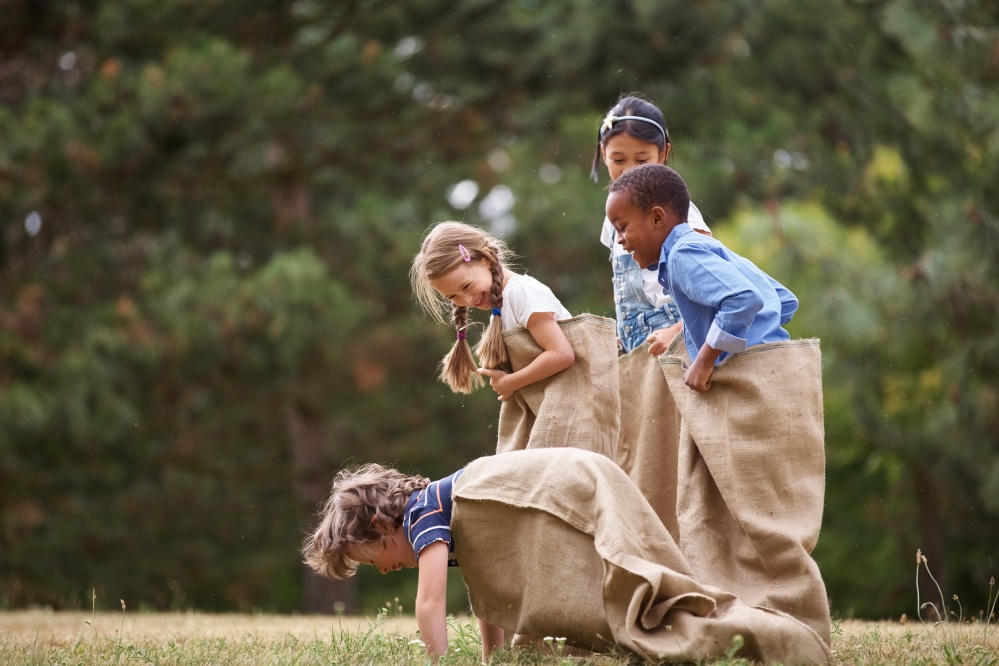Why Kids Need to be Allowed to Fail

Living North’s columnist Dr Maurice Duffy on the importance of letting kids be kids, how to help them become self-confident, and why all kids should learn how to fail
To thrive, kids need to trust in their own capabilities while also learning to handle any push backs or obstacles they may come across if they are not successful at something. However, it is important to note that children are not things to be moulded, but things to be unfolded.
Unfolding children is not just about answering their questions but also about opening exciting new doors for them, to places that they would not think of going, encouraging them to experience things that challenge them and help them grow. It is only in their experiencing and mastering of these events, and rebounding from failure, that our children develop healthy self-confidence. Confidence is one of the greatest gifts a parent can give their child.
As parents, we worry about what our child will become tomorrow. Yet we forget that the emotions we are depositing today create the adult of tomorrow. It is easier to build confident children than to repair broken, anxious adults.
My experience of children and parenting spreads across decades. My mistakes are legendary. I am a middle child of eight, where I was responsible for three younger siblings while I was still a teenager. I have three adult children of my own so have walked the whole ‘child to adult’ experience three times, and made all the mistakes one could possibly make. Now, I have a 12-year-old son at home so I am revisiting many of my own mistakes again. I also have three grandchildren, one of whom is actually older than my youngest son.
So, mistakes in parenting, tantrums, teenagers, social media, boyfriends, girlfriends, anxiety… I have seen it all through four generations. And what I have learnt is that our children are educated by the way we behave as adults, not by what we say as parents.
This week I ran a short programme for 30 parents in which I was asked to share my experiences as a mindset coach, behaviouralist and older parent. The title of my session was ‘the training course parents wished they had gone on before they had so much fun in bed’.
The main themes discussed were kids’ confidence/self-esteem, and helping kids to rebound from obstacles.
My main lesson for the parents was to ensure that they realised that parenting without a sense of humour is like being an accountant who sucks at maths. As parents, we should break our kids out of the prison we imprisoned them in, or the chains from our own lives that we have attached to them.
We must allow them to be creative. We must let them learn through mistakes, experimentation, play acting and simple play.
Everyone always says that you learn from your mistakes. While this is absolutely true, our school systems are designed in such a way that you must memorise a thick book filled with facts, then regurgitate those facts for a test. That is not life-learning. That is preparing our children for today’s mundane jobs that will no longer exist in the future. Did you know that 75 percent of the jobs that will exist in 2030 do not exist yet?
I find that important issues our children will face in their future are completely neglected in their current education, leaving their future selves to figure it all out on their own, probably with disastrous consequences. The education system and parents must now step up and prepare our kids for dealing with today’s everyday life, while giving them the creativity, curiosity, freedom of thought and expression that will allow them to flourish tomorrow.
In the weekend programme, we focused on one aspect of children’s learning in particular, and that is confidence. Low confidence, anxiety and poor self-esteem so frequently lead to under-performance, unpopularity and greatly-reduced happiness and satisfaction in later life. Most of us know that patterns established in childhood can often last a lifetime and impact our future lives. Let me share three things we discussed:
• Parents must model the confidence they want the kids to have, because ‘those who have no confidence in themselves are twice defeated in the race of life’. Children have never been particularly good at listening to their elders, but they have never failed to copy their behaviour. Kids don’t always remember clearly what parents try to teach them, but they certainly remember who and what their parents are. We try to help kids by giving them answers to remember rather than problems to solve and the confidence/self-esteem to be themselves. Self-esteem is like a magic wand that creates a child’s future and affects every part of their existence.
• One of the things I teach children, parents and leaders alike is about curiosity. I often say that to me, all leaders are intelligent, but not all are inquisitive, and that is an essential skill in this new world. Our school system is mass producing standardised batches of graduates, as if it were a factory where each student is a product to which some value needs to be added before it can be sold for a profit. Believe me or not, every child is unique. Everyone has a different mind and a unique talent. Your kids are born inquisitive, and it is this curiosity that allows them to learn more about the world through every experience and social interaction. Yet, our schools do not have classes on curiosity. Let your kids explore, question and use their imaginations, and this positive cycle of learning will fuel their happiness and enrich their lives for the future. So, encourage curiosity, always.
• We must also help our kids not to get upset about mistakes. We must encourage them to make mistakes and show them that mistakes are our best teachers, as failure is not the opposite of success but part of success. If you teach your child to find the reason behind the mistakes, that is a noticeably big learning experience. So, be mindful of your own reaction to your child’s mistakes and focus on the positive outcomes of those mistakes. Don’t rescue your child from their mistakes. Encourage them to try new things and teach them to tolerate failure, or you risk leaving your children vulnerable to anxiety when the inevitable failure does occur. Even more importantly, the inability to deal with mistakes and failure can make kids give up trying altogether, whether it be trying again after failing, or trying new things in the first place. This is the reason why Michael Jordan, one of the world’s greatest athletes, has spent years preaching the importance of losing.
Parents face enormous pressure from other mums and dads, social media, and even from themselves. But don’t let it get to you. We should appreciate the joys of our kids in the present, rather than obsessing about the uncertainty of the future. Let our kids be kids. Let them learn though play and enjoy being kids. Show them the way. Find your own inner child, express your own curiosity, be a child again, learn to live life in the present, and they will follow your example to a better future.
‘All children are born as artists; the problem is to remain an artist as we grow up.’ Picasso.
Dr Maurice Duffy is Visiting Professor at Sunderland, consulting coach to the NHS, the Australian cricket team, Durham Cricket Club, international golfers, rugby and many sports people, and also coaches many senior FTSE 100 business leaders and politicians around the world. Find out more at www.mauriceduffy.com or follow him on twitter @thebeaksquawks







